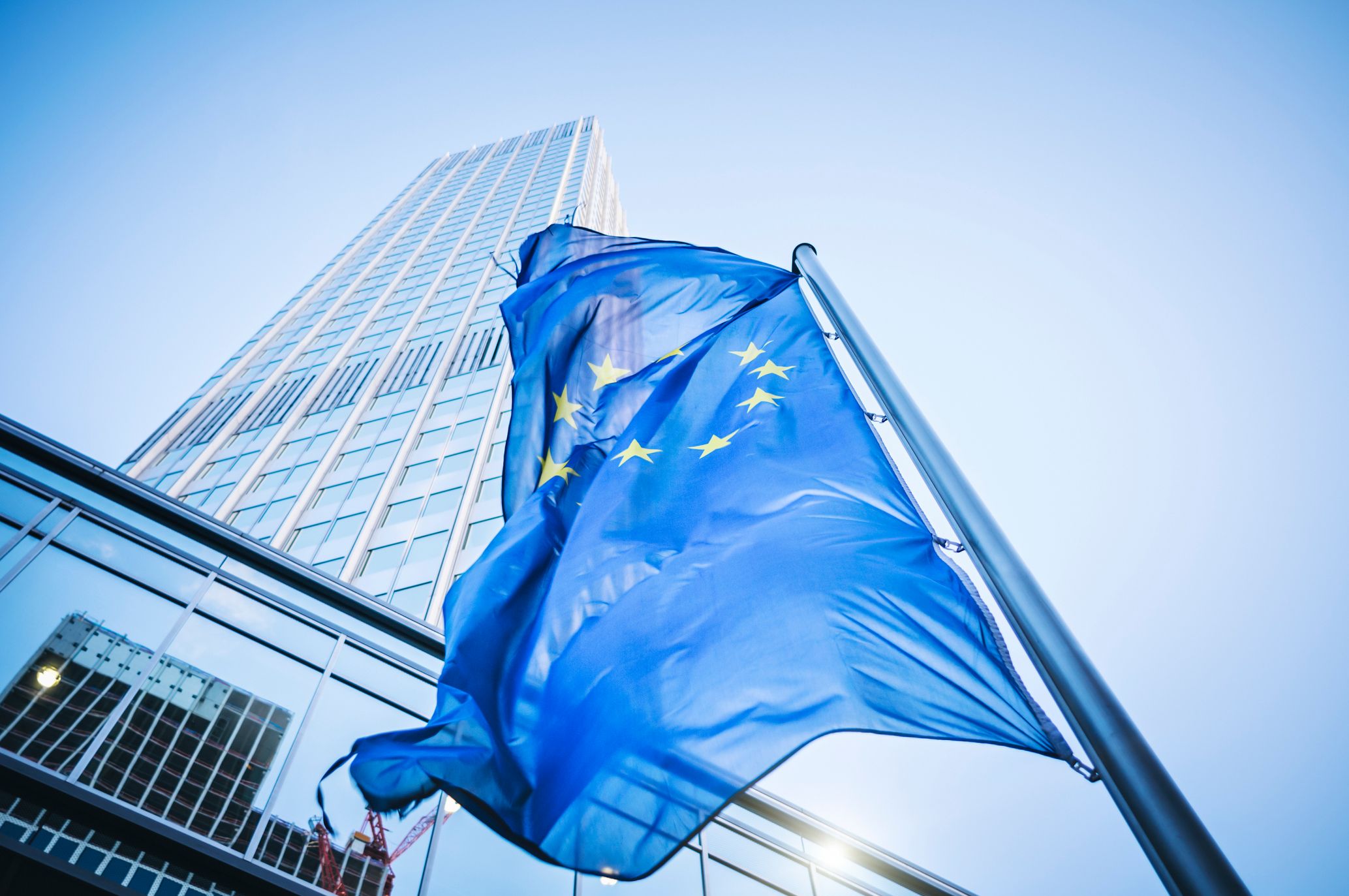Sustainability reporting is undergoing a shift in Europe. While the Corporate Sustainability Reporting Directive (CSRD) was initially set to bring sweeping changes and make sustainability disclosures mandatory for thousands of companies, recent proposals from the European Commission could scale back these requirements. If adopted, the amendments would limit the CSRD’s scope to only the largest companies, reducing compliance burdens for many businesses. However, for those still covered, the directive remains a major step toward transparency, standardisation, and accountability in corporate sustainability reporting.
The goal of CSRD is to increase transparency about companies' impacts on the planet and people by getting them to step up their sustainability disclosures with stricter and more transparent reporting standards. Overall, the CSRD aims to create a more uniform approach to sustainability reporting across the EU and to ensure that the information is consistent, reliable, and easy-to-understand for all stakeholders.
It also supports the Green Deal, a set of initiatives designed to cut greenhouse gas emissions, drive investment toward sustainability, invest in research and innovation, and preserve the EU's natural environment.
“High-quality and reliable public reporting by companies will help create a culture of greater public accountability.” - The European Commission
The CSRD came into law at the beginning of 2023, and now the clock is ticking for the first group of companies to comply with the new regulatory requirements for their 2024 fiscal year’s reporting.
To comply companies must introduce a new level of rigour to their ESG reporting. But don’t worry, CoolPlanet has you covered here, more on this later. In the meantime, here are the important points explained with regard to its application and your company’s compliance.
Does CSRD apply to my company?
The CSRD has significantly expanded the number of organisations required to disclose sustainability information compared to its predecessor, the Non-Financial Reporting Directive (NFRD). While the directive originally aimed to cover around 50,000 companies, recent proposals from the European Commission could reduce this number by exempting smaller businesses. However, as it stands, CSRD still applies to a wide range of organisations, including large EU companies, listed SMEs, and about 10,000 non-EU firms with substantial operations in Europe.
What companies does CSRD apply to?
- Large listed companies, banks, and insurance companies already subject to the NFRD
- Listed European mid-sized companies
- Listed European SMEs
- Large private European companies Non-European companies with significant business in the EU
"[The CSRD will] end greenwashing, strengthen the EU’s social market economy and lay the groundwork for sustainability reporting standards at global level". - EU Parliament
What are the EU CSRD requirements?
The EU CSRD has established some standard rules for companies to follow when creating their annual sustainability reports. Now you will have to include:
Double materiality
Companies must analyse their sustainability impact through two different types of materiality, which are:
How their business impacts people and the planet.
How sustainability and climate change impact their business.
Ensuring companies focus on the topics that matter both to the organisation and society at large.
For example, if a Chocolate manufacturer based in Belgium sources its cocoa in South America then the company must report on their supplier's operations with regard to sustainability/impact on the planet and people as well as their own (scope 3 emissions).
ESRS
Companies must follow the European Sustainability Reporting Standards (ESRS) when conducting their sustainability reporting.
These standards cover environmental, social, and governance topics. More on this shortly too.
Third-party assurance
The CSRD requires companies to provide limited assurance for their sustainability information. This means that an impartial, reliable, and knowledgeable third party must review the data to ensure it is accurate and reliable.
CSRD disclosures will need to be part of the management report in digital format so that submissions can be aggregated into a single EU-wide database.
ESRS and new disclosures explained
The European Sustainability Reporting Standards (ESRS) are a set of standards that companies must adhere to, in order to comply with the EU CSRD. They outline what is included in each of the four disclosure sections.
The ESRS covers four key topics that must be included, which are:
- General reporting requirements: a framework for how to report the information required
- Environmental Impact: expands the scope of sustainability reporting by covering categories beyond just carbon, including pollution, water, marine resources, biodiversity, and ecosystems.
- Social responsibility: cover the topics of the company’s own workforce, workers in the value chain, affected communities, and customers and end-users.
- Governance: covers business conduct.
The standards were approved in August 2023 and the ESRS has also announced that they will also create ten sector-specific standards to disclose more information, targeting energy-intensive industry sectors.
When will the EU CSRD go into effect?
The rules will start applying between 2024 and 2028:
CSRD reporting requirements will be phased in for different groups of firms over the coming years.
- From 1 January 2024 for large public-interest companies (with over 500 employees) already subject to the Non-Financial Reporting Directive (NFRD), with reports due in 2025;
- From 1 January 2025 for large companies that are not presently subject to the NFRD (with more than 250 employees and/or €40 million in turnover and/or €20 million in total assets), with reports due in 2026;
- From 1 January 2026 for listed SMEs and other undertakings, with reports due in 2027. SMEs can opt out until 2028.
- From 1 January 2028 the new parent-company level reporting requirements for qualifying non-EU firms will form part of 2029 reporting, using 2028 data/
Start taking action now
Though it may feel far away, the sooner your company begins planning, the easier it will be when the regulations come into effect. Under the proposed value chain sustainability reporting, companies will be required to report scope 3 emissions.
These indirect emissions result from the company’s upstream and downstream activities and are notoriously tricky to measure, which takes time. Companies should begin the process as soon as possible, to ensure they will be compliant.
Recent Proposals to Amend the CSRD
On February 26th, 2025, the European Commission proposed amendments to simplify the CSRD requirements as part of a broader effort to reduce regulatory burdens. These proposed changes aim to balance sustainability goals with business competitiveness. Notably, the Commission suggested that the CSRD should apply only to the largest companies (those with more than 1,000 employees), significantly reducing the number of firms required to comply. This would exempt approximately 80% of companies previously covered under the original scope.
The proposal has sparked debate, with some arguing that it will help businesses manage administrative costs and compliance burdens, while others fear that it could reduce transparency and weaken sustainability efforts. However, it is important to note that these changes are not yet law; they must first be approved by the European Parliament and EU member states through the standard legislative process. Until these proposals are formally adopted, the current CSRD requirements remain in effect
How can CoolPlanet support you?
For companies to report on these new areas and topics, they will need to set clear climate targets and put in place an audit-ready reporting infrastructure.
Companies need to gather, process, and disclose a large amount of data covering various time periods and metrics. This will mean the adoption of new systems and processes and possibly bringing in external expertise like CoolPlanet to help you set them up.
CoolPlanet can play a crucial role in helping businesses meet their CSRD compliance requirements through various avenues, including:
Data Collection and Reporting
CoolPlanetOS, our energy management software, can collect, consolidate, and analyse the required non-financial data, which includes energy usage, emissions, and other sustainability-related metrics. This comprehensive data compilation streamlines the reporting process.
Automated Reporting
CoolPlanetOS can generate automated reports that align with CSRD guidelines. This reduces manual effort and ensures accurate and consistent reporting.
Standardised Metrics
CSRD emphasises standardised reporting. CoolPlanetOS uses consistent metrics across various reporting periods, ensuring comparability and reliability of data.
Transparency and Accuracy
Real-time tracking capabilities enable prompt identification of anomalies and informed decision making to rectify.
Audit Trail
CoolPlanetOS maintains a detailed record of data inputs, changes, and updates. This audit trail supports the company during audits, providing evidence of compliance.
Integration with Financial Data
Energy usage and sustainability performance are interconnected with financial aspects. CoolPlanetOS can integrate energy-related data with financial data, enabling the company to present a comprehensive view to stakeholders.
Scenario Analysis
Companies need to project their environmental impact and sustainability efforts. CoolPlanetOS can perform scenario analysis, helping your business to understand potential outcomes of various actions.
Alerts and Notifications
Alerts and notifications show when data falls outside predefined limits, ensuring proactive management of compliance-related issues.
Benchmarking
CSRD encourages benchmarking of sustainability performance. CoolPlanetOS can assist in comparing the company's performance against industry standards and peers.
Stakeholder Engagement
The software can facilitate sharing sustainability reports with stakeholders through various channels, promoting transparency and engagement.
Long-Term Planning
Our engineering and data experts can help your team develop long-term sustainability strategies, aligning with CSRD's objective of fostering responsible business practices.
In essence, CoolPlanet will help you streamline data collection, reporting, and analysis, ensuring accurate, timely, and standardised reporting in alignment with CSRD compliance requirements.
To enlist our support with execution on CSRD compliance or any other element of your corporate sustainability ambitions, please get in touch with our expert team of energy managements consultants today.





